EVE Online is defined by war. Men and women live and breath for these fights, dying (virtual) deaths over and over to achieve some goal. But whether it be massive fleets firing at each other from great distances, bomber wings diving in on a helpless foe, small gangs flying from place to place to take down targets of opportunity, or even taking on Incursions or Sleepers, every fleet needs someone in charge.
The people who take up the duty to command these fleets are known as fleet commanders. A good fleet commander can turn the tide of a battle, bring an underdog to victory, and extract their allies from lost causes. The best fleet commands are known throughout EVE for their skills and command high positions in the strongest alliances in the game.
But being an FC is not a task taken lightly.
Becoming an FC
An almost universal sentiment among FCs is that you sort of fall into the role. “I never intended to become an FC,” said Jayne Fillon, an FC for the popular Spectre Fleets, summarizing what many others said. “I joined a bomber fleet that was going to attend a fight over a station in deep nullsec. When we arrived, things went very wrong, very fast. Our primary Fleet Commander rage quit after being killed and left the fleet without a leader, deep in nullsec, with no bridge back to high. [...] So I stepped up and took command.”
Others didn't have so much drama involved in their rise to FC, but simply saw a need and took action. “I just saw the need for someone to FC and did it,” says Sir Squeebles, a popular streamer. “My experience has always been that no new FCs will be born if there's always a more respected, more experienced FC around.”
Greygal, an FC for Redemption Road and a former Agony Unleashed instructor, relates a similar story. “When I was still in my first corporation, I found myself organizing a lot of different things because no one else would. When you organize events, you often end up leading those events, including FCing.”
One of Nulli Secunda's primary FCs, Canaris Roshaak, agrees. “I was typically playing after all our alliance FC's had gone to bed, so we had no one to lead us. So one night I put a fleet up, got our guys to join, and led them out to fight the roamers.”
Motivation
Of course, there are always roles to be filled, but not everyone steps up to take the reigns. But why they chose to make the leap varies from person to person. “I've always liked to lead, to be someone others are willing to follow” says Mangala Solaris, a leader of Red vs Blue and CSM representative. Being a leader, and helping others get fights in EVE, is a large motivator for him. “I love knowing that my actions are causing other people to enjoy and get the most out of their game time.”
Ivanrus, the CEO of Wormhole Holders, had similar reasons. “I find it interesting to analyze a situation and implement my own ideas. Also, it was good practice to improve my leadership skills.”
Others just live for the thrill and knowing they're the best. “I would say the main reason I FC is purely competitive,” says Canaris. “I love to compete and I love to win.”
“There's something special about being responsible for the fate of dozens or even hundreds of people who trusted you with their ships,” says Professor Clio from RvB. “It gives me a rush like no other to know that if I do my job right my fleet has fun and if I mess up they lose all their ships.”
A lot of people echoed the words of Mangala and Clio, loving that they help people have fun. “It's immensely rewarding to know that my fleets have reduced boredom-based thumb twiddling in EVE by some margin,” says Squeebles.
And once they started FCing, it became hard to stop. “There is a lot left in the sandbox for me to discover,” said Jayne, “but for now I'm just having too much fun.”
Greygal concurs, saying, “To me, when I FC, I am throwing a party.”
While Zwo Sateki, an FC for the RAISA Incusion community, said, “It became an obsession of sorts (once an FC, always an FC).”
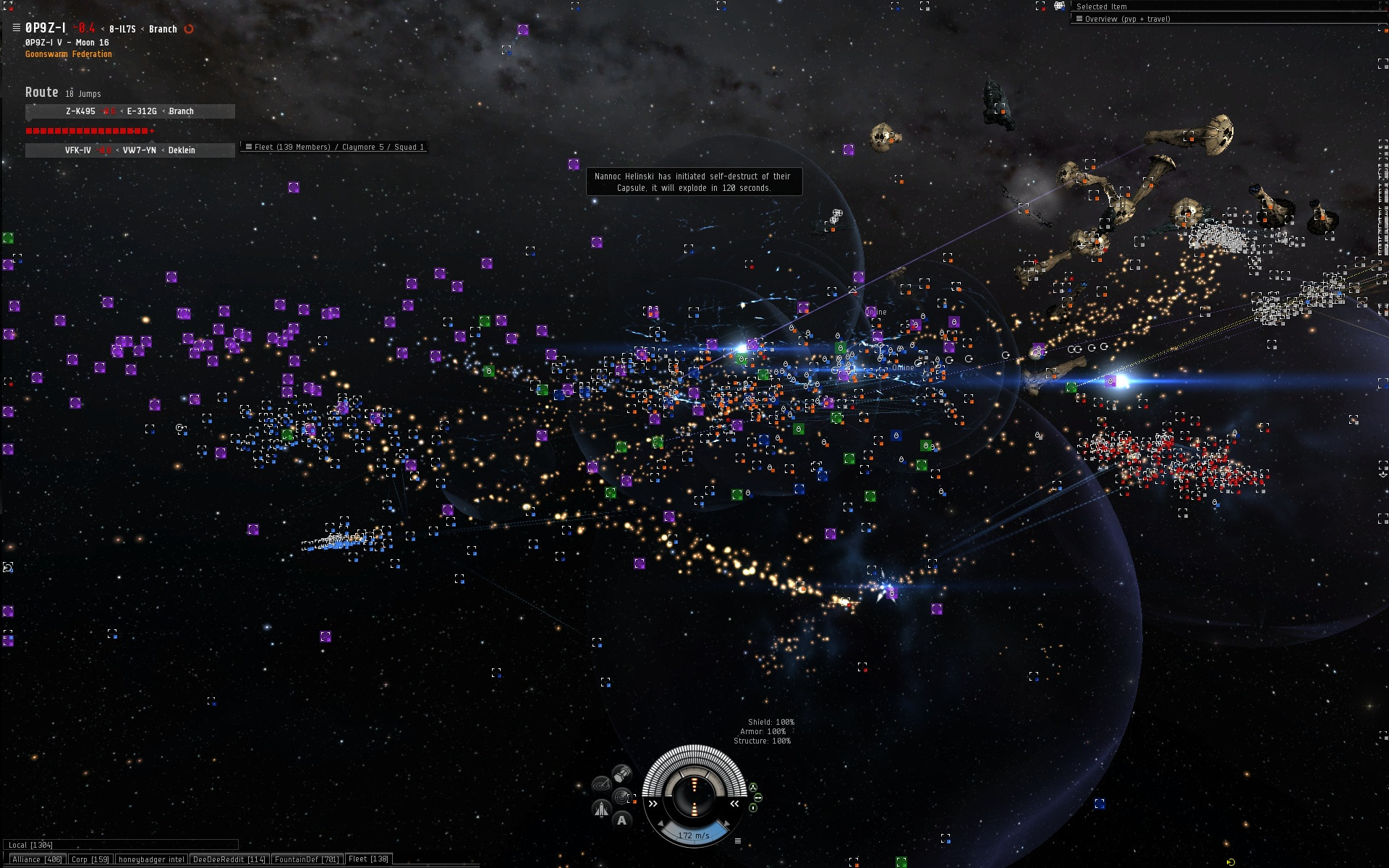
Growing Into the Role
Of course, simply leading a fleet doesn't mean you're an expert FC. Every FC I spoke to said their first ventures into the role had their ups and downs, though it didn't dissuade them. “We promptly got slaughtered,” Canaris said of his first try at FCing. “But I was hooked.”
Failure is a sure thing, no matter how natural you are at it. “Like anybody else, I started slow and made mistakes,” said Professor Clio. However, many find themselves quickly becoming acclimated and growing to greater and greater heights. “Pretty soon I moved on from FCing 10 man frigate fleets to large and large fleets.”
Some took longer than others, of course. Greygal, even after several years, still doesn't consider herself “a really good FC”. But the important thing, as she puts it, is “People keep X'ing up for my roams, so I must be doing something right.”
Hardships and Difficulties
Of course, the role of FC isn't for everyone. Squeebles puts it best when he explains why some people don't step into the shoes. “There are a lot of people in EVE who either don't have the experience of have convinced themselves they don't. They don't want to be responsible for the potential failure of a roam and the loss of ships.”
Those that do have the fortitude experience many difficulties and the nature of these difficulties are what they disagree with the most. As Squeebles says, “The most difficult part of being an FC depends [partly] on the individual FC.”
For him, it depends largely on the nature of the fleet. “Some objective-based fleets want to accomplish the goal with minimal losses,” he says. “The majority, however, are a bit more general and the only objective is to get a fight. In that scenario, the most difficult part is finding a fight to justify everyone's time.”
Greygal's primary concern isn't wasting people's time, it's making sure people show up. “When nobody shows up for a roam you scheduled, it's heartbreaking,” she says. She doesn't face that problem often, so she does have other concerns. “The most difficult part is managing expectations. Some people expect epic, glorious battles like they see on EVE videos, others are very risk-adverse and want us to only take fights we can win, and then the rest understand the fleets I lead are social in nature, about fun and explosions and exploding.”
Others take a look at it on a more tactical level. “Situational awareness is key and takes a long time to develop,” Professor Clio says. “It's very easy to be overwhelmed by the amount of information you need to process in order to give the right order to your fleet.”
This wealth of information is emphasized by Jayne. “The most difficult part of becoming an FC is learning what each and every ship does, how they are usually fit and flown, and how you can counter them,” he says. “You need to be smarter on either a technical or a tactical level in order to defeat your opponent and because of this there exists no steeper learning curve than becoming a Fleet Commander.”
Others don't have such concerns. “Keeping yourself from getting an ego […] after a string of wins,” is what Canaris jokes about his biggest challenge.
Ivanrus keeps it simple, saying, “There is nothing difficult at all. All you need is motivation and the wish to learn.”
Doctrines
Many who hear about fleets in EVE are regaled with stories about fleet doctrines like Hellcats, Sentry Domis, AHACs, and the like. But in actuality, not all FCs are quite so strict.
“I generally will declare a preferred hull size and often a preferred ship type,” says Greygal, “but I try to keep my doctrines as open to a wide a pilot skill range as possible.” This makes sense for her, since she runs a lot of open fleets.
Squeebles is the same, believing that it helps with participation. “I generally find that doctrines discourage or limit participation,” he says. “I find that more people are willing to join a fleet for 'Kitey Shield Cruisers with Scythes' than if I list specific fits with T2 mods that they might not be able to use. So for me, 'doctrines' are more often replaced with just simple themes.” He
Even so, he does “have a few specific doctrines to fly on streams. We use 'Poor Man's T3s' which is an armor cruiser fleet using T1 hulls. We occasionally fly nano shield Dragoons. We sometimes fly combat Blackbirds. There have only been a few occasions in the past year or so where we've fun anything that could be considered a genuine doctrine.”
Kutris, an EVE Flight School FC, says that it really depends on the objective. “If it's ordinary roaming, then the setup doesn't matter. The most important part is that your pilots love to fly their ships. If it's a serious operation and your enemy is known, then the requirements are strict and usually it's an old, good setup tested by time.”
The time-tested doctrines are important to many FCs. “The larger Incursion community has developed custom-tailored solutions over time,” Zwo says. “There are very specific guidelines for Incursion fittings; kitchen sink fleets just cannot do Incursions effectively.”
This is especially true in large nullsec warfare. “I try to strictly enforce fleet doctrines for any strategic operation,” says Caranis. “A tight fleet composition can be the sole difference between victory and defeat while facing skilled opposition.”
When devising these doctrines, Caranis and Progodlegend “spend hours theory-crafting fleet concepts based on what our enemies typically use or what we want to do with the fleet. We try to base the concept around a core function, such as maneuverability, and incorporate everything from our main-line DPS ships, logistics, and newbie-friendly support ships.”
Discipline
No matter if a doctrine is enforced or a kitchen sink fleet is being flown, a fleet cannot be successful unless people follow orders and don't go off running on their own. Chaos has rarely been advantageous for a fighting force to succumb to.
“Those who are not willing [to listen] but prefer to slack get kicked from fleets in a fairly short order,” says Zwo.
Ivanrus follows the same thought process. “I make the rules public and ask people to uphold them. I kick those who don't.”
But to keep people discipline and in fleet, there are many different methods. “You make your fleet self-managing,” Squeebles says. “The only truly effective way to maintain discipline is to have part of your gang trained and able to enforce discipline on the other part. More often than not questions asked in fleet chat or comms are answered by someone without me needing to address it. That, in my opinion, is the ideal of fleet discipline.”
Jayne and Kutris prefer to use their method of speaking to enforce it. Kutris says he keeps discipline “By my words (sometimes bad words).”
Jayne has what he calls “FC voices”. Most of the time, he is relaxed and encourages banter. But when things get serious, he does too. “When people aren't doing what I want, I break out my 'annoyed' voice that tells people that I'm disappointed in them, guilting them into doing what I want. Finally, if all else fails, the 'angry' voice does wonders, but I reserve that one for special occasions. The key is to never yell, though. Always be calm and your calmness will trickle down to the fleet.”
Others, though, don't worry too much about it. “Keeping discipline in a fleet usually isn't very difficult,” says Greygal. “Those that are experienced are generally well-behaved. Those that are inexperienced are usually so afraid that they will make a mistake that they pay attention and follow every order to the letter. The most important thing an FC can do to main discipline is to explain their comms and fleet movement preferences, what the goals of the fleet are, and what their expectations are in advance.”
Canaris, meanwhile, relies on “my reputation in my alliance and coalition. After years of FCing, my guys know who I am and how I FC, and for the most I would say they trust my decision making. A lot of poor fleet discipline stems from people second-guessing new or inexperienced FCs.” But, much like Jayne, he knows tone of voice can go a long way. “A change in tone is typically enough to reestablish discipline in a fleet.”

Picking Your Battles
Deciding whether to engage or not is a big choice. Many inexperienced FCs can become frozen with indecision. Do we fight this or do we back off?
A lot can go into taking the plunge into battle. “Mostly I look at our fleet composition and theirs, who their FC is if I know, and how important whatever objective we're going after is,” says Canaris.
The point of objectives is echoed by Squeebles, who responds by first asking a question of his own. “What is your fleet aiming to do? Ultimately, I think the good FC starts analyzing a fight by asking 'What's good about this fleet comp? What advantages does it offer?' and then crossing those off when considering the enemy fleet. If too many things are crossed off, you must seriously consider avoiding the fight.”
“This is an impossible question to answer explicitly without considering the near infinite amount of variables that can occur during EVE combat,” adds Jayne. “When choosing to engage, remember that it's not just 'if' you engage, it's 'when', 'where', and 'how' that really makes the difference.”
Kutris specifically looks for weaknesses. “If the enemy is weaker or somewhat equal to ours in quality and quantity we engage. If we are outnumbered, we wait to kill someone who was slow enough to be cut from the main fleet.”
Others, however, are simply out for fights, no matter what. “If I think there's even a chance that I might win or even just have an entertaining battle, I'll charge right in,” says Clio. “I only refuse to engage if I know for a fact I'll get crushed.”
Greygal takes it even further than that, saying she just asks “'Can I kill ONE of them?' That's how I decide whether or not to engage an opponent fleet.” And when a fight turns sour? “I usually retreat when half or more of our fleet are in pods.”
As one of the leaders of RvB, it should be no surprise what Mangala's mindset is. “It's more a case of 'Will I inflict enough pain for them to bail before we have to?'”
Tactics
Everyone favors their own tactics in EVE and the FCs are no different. Each of them has a favorite way to take a battle.
A lot of them agree with what Squeebles says, “Outright aggression. There's no real counter to the all-in by an enemy fleet other than just outright tanking it.”
The in-your-face brawling style is also favored by Greygal, who says her favored tactic is “rush in and start shooting”, though she will adapt when needed. “Tere are times when I will use hit-and-run tactics to pick off a weak target in a fleet I otherwise might not engage, and I am really good at GTFO tactics either to save the remnants of my fleet or to avoid significantly larger fleets.”
Mangala also answers “drop down dirty brawling is what I really, really favor. It helps that I often have the larger fleet, so I can brute force a win if need be without it being too much of a pyrrhic victory.”
Of course, not everyone prefers the go-in-swinging approach. For an RvB FC, Clio differentiates himself by preferring tactical fights. “I prefer fights where positioning and fleet movement are important.”
So too does Canaris, for practical reasons. “You can take a ton of fights if you can mitigate the enemy's damage either through field position and EWAR.”
Being able to take a lot of different fights is why Jayne prefers sniping. “It allows for a wide variety of targets that can be engaged effectively and teaches people about tracking, transversal, signature radius, sensor resolution, and other very important facets of EVE combat. Making a mistake in a sniping doctrine is unforgiving and punished with heavy losses.”
Command Shakes
Most people who have engaged in PvP have gotten the combat shakes. Even experienced PvPers can have these happen when they're put into a command role. “I used to get the shakes bad when FCing,” says Mangala. He has overcome them, however. “I am considerably calmer,” he says, which helps him out quite significantly. “I am continually evaluating the field for the best targets to call at a given time, focusing on the status of my fleet, and ensuring that my calls/broadcasts and other orders are followed as smoothly as possible.”
Clio has a hard time describing the mindset. “It feels like the game becomes my entire universe and 100% of my brain power goes into trying to process all the information the game throws at me. Instinct takes over and I call targets by their threat/tank ratio, meaning I try to get as much threat off the field as quickly as possible.”
The nearly-overwhelming flow of information is a big part of what gives many FCs their greatest thrills. “There exists no greater adrenaline spike than the start of a large fleet engagement,” says Jayne. “The experience elicits an incredible range of emotions: excitement, anticipation, fear, hope, and panic to name a few.”
Greygal says there are rare fights where “you are in a kind of zone and everything falls into place just so perfectly. You feel connected to everyone in your fleet, nothing exists except for you, your fleet, your targets, and it's just so smooth, so surreal. It's magical.”
For some, though, the process of FCing is old hat. “At this point, I would say it's mostly muscle memory,” says Canaris. “I know what enemy ships need to die first and how to position my fleet.”
Kutris keeps it simple. “The only thought is to not miss the time when we need to retreat if the battle turns bad.”
Kpekep, the CXBATKA anti-pirate channel FC, actually says thinking can be harmful. “There is nothing going on in my mind during the fight. If that happens, the fight is lost. You have to think before the fight. The fight itself is a time of constant action. Your mind switches off and wakes up only if the battle conditions are changed greatly. You don't need your mind, you need your instinct.”
Advice for New FCs
It may seem daunting for new FCs, but there is plenty of advice to go around. Everyone makes mistakes and Canaris says, “Don't be afraid to lose, but learn from your losses.”
And, even in the face of failure, follow Clio's advice. “Just do it, over and over and over again. It gets easier with practice. In the beginning, we were all rubbish. Even the best FC in the game made dumb mistakes when he first stepped up. And even if you do make mistakes, the simple fact that you're willing to put yourself out there makes you a hero in my book.”
To help get through these rough times, Jayne suggests you “find a community, a corporation, or an alliance that will allow you to experience [failure] without any pressure or obligation. The best place to learn is somewhere that experienced players and fleet commands can help you, let you know what you did wrong, and coach you how to do better.”
Having a friendly group is one of Squeeble's pieces of advice as well. “Don't set out to FC tfor your entire 200-man mining alliance if you have no experience. You'll make plenty of mistakes, but there are people who won't forgive your inexperience and their confidence in you as an FC is very, very difficult to regain. Find a friend or 2 or 5 and form a fleet. This is a group you can truly learn with.”
He adds in a couple of pointers to learning, suggesting you “FRAPs the fight! Watching/listening to the playback of your fight is amazingly fun and a huge educational tool. Fights get so much simpler when they're not happening to you.”
Greygal offers some additional advice, saying “Keep it simple. Delegate everything possible. Ask for advice, but make the decisions yourself. You don't need to know all the ships, tricks, systems, and opponents in EVE to FC well, all you need to do is get out there and do it.”
Kpekep suggests a broader view. “Find your own way. Read some classics about warfare. This will help you understand the reasons for your actions and will keep you safe from doing some mistakes.”
Final Thoughts
A thought echoed by all of the FCs was that being a fleet commander is one of the most challenging and rewarding things to do in EVE. It may seem difficult to do, or too risky, or too nerve-wracking. But if you have confidence and want to make a mark in EVE, jump in and do it!
And thanks to all the FCs who agreed to answer questions for us: Canaris Roshaak, Greygal, Ivanrus, Jayne Fillon, Kpekep, Kutris, Mangala, Professor Clio, Sir Squeebles, and Zwo Zateki.
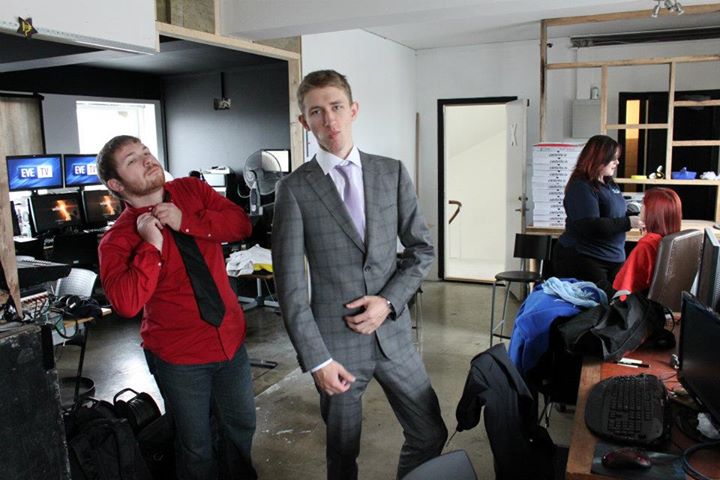 What does the job actual entail?
What does the job actual entail?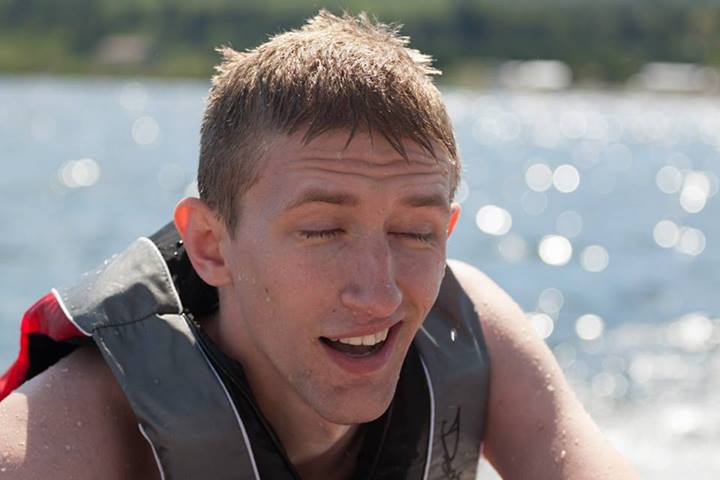 What’s the one thing you’ve worked on in EVE of which you are proudest?
What’s the one thing you’ve worked on in EVE of which you are proudest?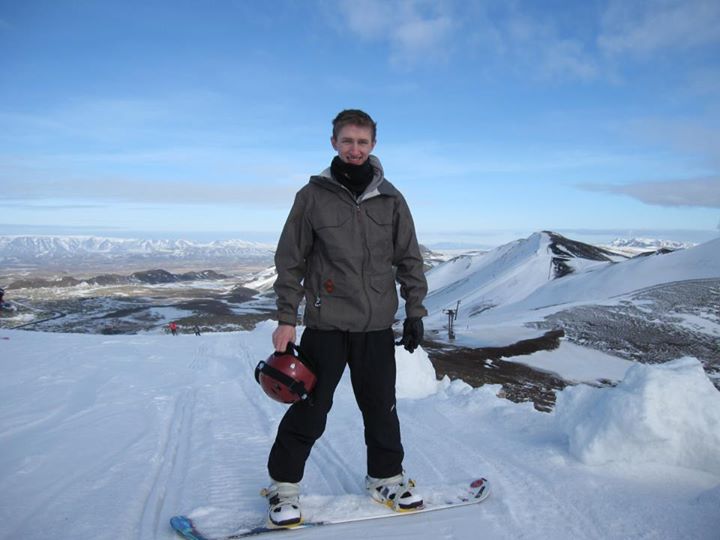

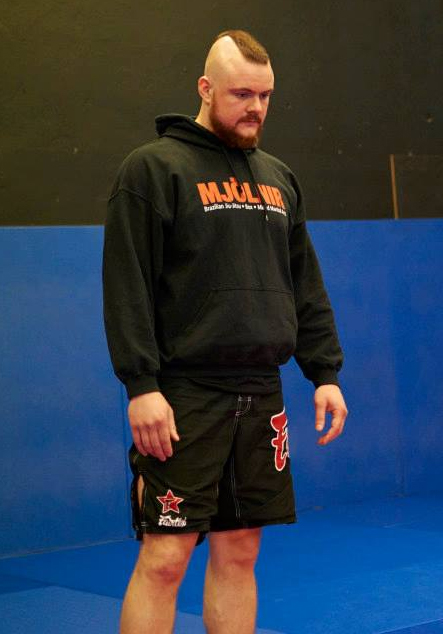 What is your official job title with CCP?
What is your official job title with CCP? 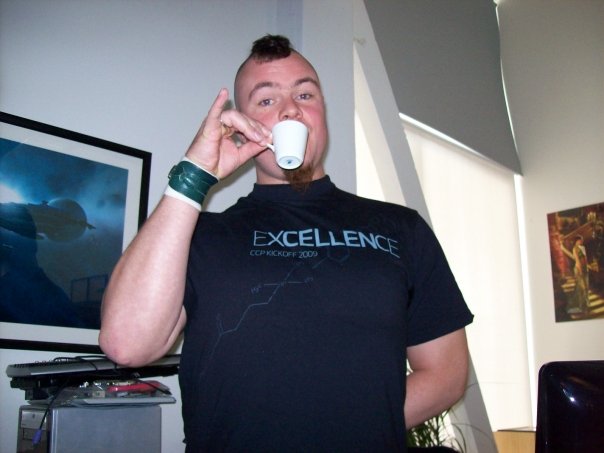
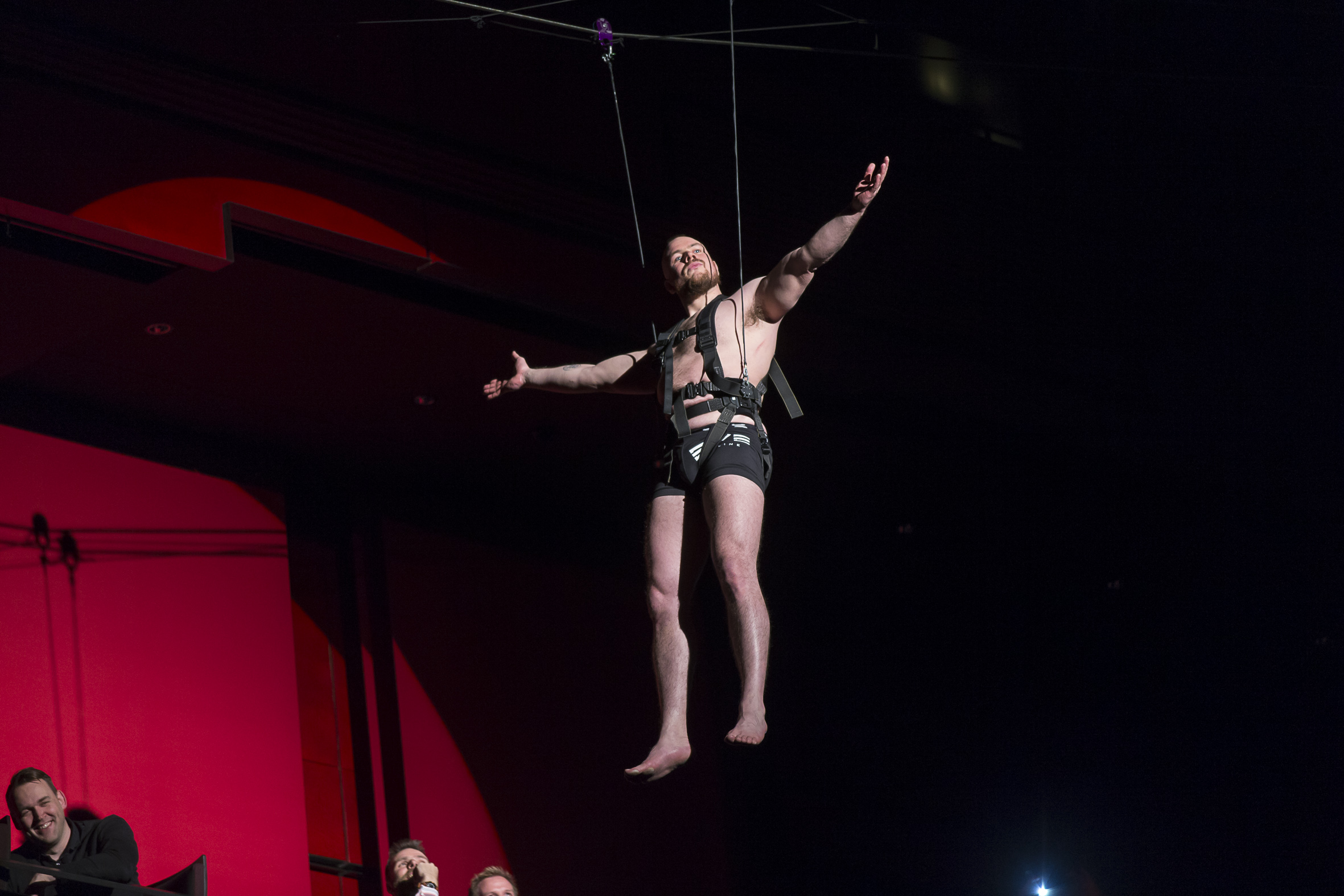 You got to fight Gunnar Nelson at Fanfest as the “secret weapon”. What was that experience like?
You got to fight Gunnar Nelson at Fanfest as the “secret weapon”. What was that experience like?
